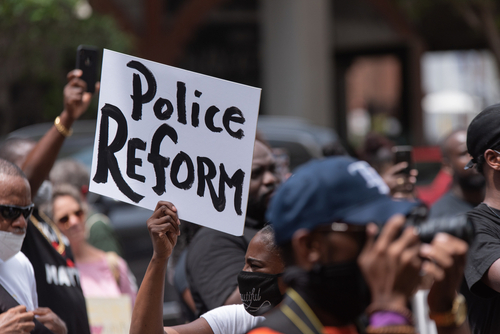Voters across US approve measures on police reform and criminal justice

Image from Shutterstock.com.
Ballot measures intended to reform policing gained approval in jurisdictions across the country last week, while several other criminal justice reforms also won approval.
In California, voters restored the right to vote for felons on parole but rejected a bid to replace cash bail with a risk assessment system, Law360 reports.
With approval of the felon voting measure, California joins 19 other states and Washington, D.C., in allowing felons to vote after release from prison, the Sacramento Bee reports. Previously, felons couldn’t vote until they finished parole, according to the Associated Press.
Police reform measures, meanwhile, passed in several cities, according to Law360, NBC News and CBS News. They include:
• In Philadelphia, voters approved a citizens police oversight committee and banned the police tactic of stop and frisk.
• In Portland, Oregon, voters approved a measure creating a police oversight board with the power to investigate police misconduct and discipline officers.
• In King County, Washington, voters created a civilian-led oversight board with the power to investigate police misconduct. Voters in the county also passed a charter amendment requiring a special inquest when an officer kills a person, with representation for victims’ families by a public attorney.
• Voters in the California jurisdictions of San Francisco, Oakland and Sonoma County created independent oversight boards for police.
• Voters in Akron, Ohio, required police body and dashboard videos to be released publicly when police officers use force resulting in death or serious injury.
• Voters in Los Angeles County required the county to spend at least 10% of its annual general fund budget on alternatives to incarceration. Voters in San Francisco removed a minimum police staffing requirement from the city charter.
CBS News spoke with Jennifer Cobbina, a criminal justice professor at Michigan State University, who said some of the police oversight boards could be more symbolic if legislatures don’t grant them money and power.



